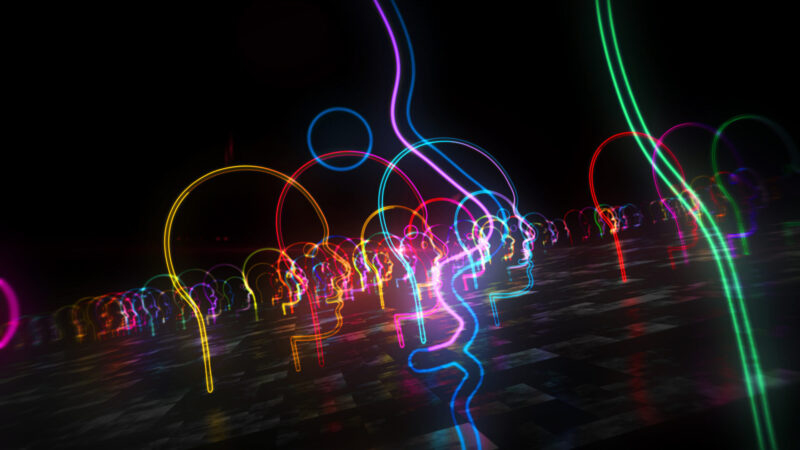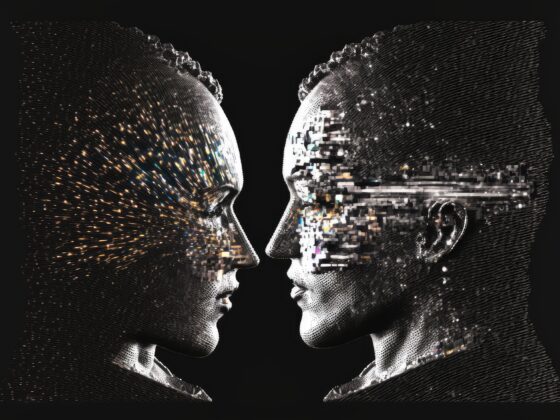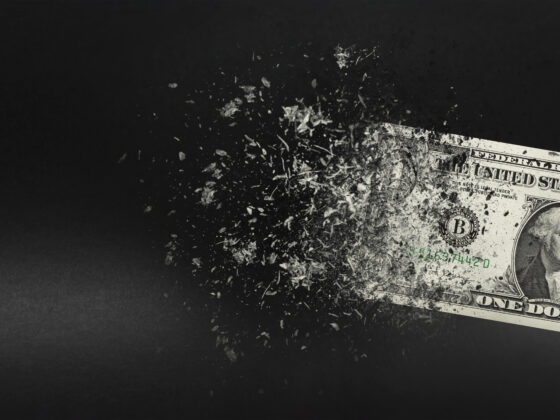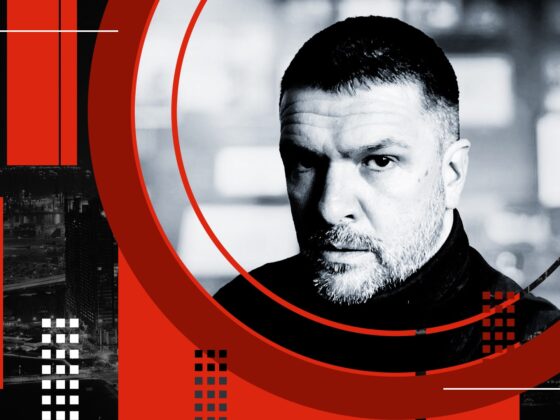What’s new is old.
I will remind you of the opening for this series:
In the past, tyrants and dictators have had a hard limit on how far they could push people. From either logistical difficulties, fear of resistance, or liberation from other nations; these hard limits have been getting softer and softer as technology advances. Recent history has shown an ever-increasing centralization of power into a smaller and smaller set of control structures.…
The tyrants of the world are winning a massive arms race against the rest of humanity. We must not merely avoid these systems, rather every one of us is responsible for preventing them from being weaponized against the people.
The covid crisis was a preemptive strike against those who would consider challenging perpetual top-down control. Using unjustified and arbitrary measures to put small enterprises out of business, putting many workers out of work. Sabotaging the education of millions of children. Separating families, and forcing the elderly to die alone. Deploying a barrage of fear and propaganda that many have hardly recovered from. The total human cost is incalculable, but the oligarchs made trillions.
All that, was just in 2020.
Odds are, if you’re reading this you’re very well aware of this. The problem is you have to understand the majority of people hardly understand it. This preemptive strike against the public was deliberate and calculated, the lack of serious mainstream accounting is all the proof anyone needs. The legacy media is (at the time of writing) complicit in justifying the measures and downplaying the harms. Upper-middle class workers in the so-called ’laptop class’ were effectively bribed with generous work from home policies. While they had the time to investigate the wider issues around them, many chose not to “rock the boat”.
“Not my problem”
What does all this have to do with social credit systems?
A gentle introduction to the human dominance hierarchy
There have been precious few exceptions and limitations. Historically, though a lot of blood, sweat and tears people were able to set limits on the abuses powers could get away with. Even from the 13th century, through the Magna Carta people managed to codify that even the king, the ruler and owner of everything, needed to have limits.
Whenever Legislators endeavor to take away and destroy the property of the people, or to reduce them to slavery under arbitrary power, they put themselves into a state of war with the people, who are thereupon absolved from any further obedience. – John Locke
This is because at even the simplest level, a gang requires some degree of chosen (or coerced) participation. The decision-makers form a chain of compliance that must remain unbroken for orders to reach all the way to the lowest levels. This means that the “game” participants play has to account for every level of the system. As groups get larger, from villages and towns to globe-spanning empires, the ‘game’ of raw domination would take on more abstractions and aspects of soft-power. Every aspect of human life is downstream of our collective behavior in this dominance hierarchy.
For example, some countries may emphasize great importance in education to develop competitive technologies to gain wealth. Others may merely use their military might to seize resources from other regions. The impacts of those differences will reverberate down to even the humble carpenter. Regardless if the country is a top-down command economy, or an entirely free market, the carpenter will find success or failure based on how compatible his products are with the power structure. In one he may have more success and status making tools, in the other he may do better making weapons.
This all sounds rather bleak. Wouldn’t it be better if we had a good dominance hierarchy, or none at all?
The story of “I am good”
In fact, in many circumstances their own self-preservation instincts will fight their better senses to conform. Just as a baby knows it will die when unloved, every cell in your body understand what standing against the dominance hierarchy means. This places an overwhelming amount of stress on anyone who consciously exists outside or against it. For the story of “I am good” to take hold of society, it doesn’t need to be particularly robust, it hinges on people’s natural impulses.
As an individual, it can be difficult to understand how your actions can cause risk or harm to others. I am highly suspicious that the Social Justice movement was weaponized to get people to reflexively defend their position within the hierarchy. “Check your privilege” was not only a rhetorical weapon used to silence others, but backs people into a corner of system justification.
This isn’t to say a good and fair dominance hierarchy can’t exist. It’s just that it has to overcome the challenges posed by competing hierarchies that compete on raw force and efficiency. There are good people constantly working to level the playing field or address problems, we know meaningful change is possible. It just does require difficult things like compromise and consensus.
Things can be hard for those who recognize what’s gone wrong and want to fix it.
Radicals vs Reformers
Reformers want to make the dominance hierarchy more fair or efficient, ideally with sane and humane goals. They recognize the benefits of preserving what’s functional within the existing structures. Even the most effective reformers will struggle against various inflexibilities of the system refusing to bend.
Radicals may or may not also want those things, but more principally want the dominance hierarchy reorganized. For some games like monarchy, replacing the king could result in a dramatic shift. Radicals recognize that those with status and resources within the hierarchy are squandering them, and that they should be used in a different way. Radicals often struggle to build meaningful coalitions to support overthrowing the existing dominance hierarchy.
In the context of many activist movements, who agree on many issues, the dividing line will be between radicals and reformers. The radicals will accuse the reformers of being propped-up by the existing power-structure. Then the reformers will retort that the radicals are sabotaging meaningful change with their resentment, arguing that keeping the power structure in place is a fair trade for meaningful change.
One of the stronger adaptations a dominance hierarchy can have is flexibility. A rigid system is too vulnerable to being outright overthrown by radicals. Instead of single-handedly orchestrating your machinations, it can be quite effective to open bid those actions to those you will reward handsomely. This is an excellent tactic to prevent defectors, because those interested in their own self-advancement will align themselves to your goals. Suddenly your vast conspiracy to dominate others is working as a decentralized network with plausible deniability, with the added bonus of components being entirely replaceable.
Social credit
Maybe you’ve got a ‘greater purpose’ in mind for such a system. I can promise you that it’s pure madness. The very imposition of such tools for total top-down control themselves are incompatible with fundamental morality. For example, we have seen an incredible rise in censorship, yet hate remains and people aren’t noticeably any nicer online. I am highly skeptical that this would improve in different hands. Merely replacing one tyrant for another isn’t the answer here.
The game of power
People decide who is high status and low status. Every act, either reaffirms or denigrates the dominance hierarchy and has associated consequences. Money is merely currency. People’s entire lives are ruled by how they are treated by those around them. There are many non-financial actions that have immense impact on a person’s overall well-being. Reducing the sum-total effects of human social interactions to financial transactions is to explore a planet through a keyhole.
The “Great Reset” and 4th industrial revolution are in fact a revolution. This revolution is one that reduces the various ‘inefficiencies’ in the human dominance hierarchy from the perspective of the technocrats. Instead of allowing people to evaluate their situation and use their mind to respond, the goal is to construct a system that dictates how they should act.
Analog to digital
Just as people communicate social signals, a digital social credit system will communicate praise or condemnation in a variety of ways. Instead of merely fining people or using the brutality of a criminal justice system, the technocracy can simply de-rank the individual and their associates. To some this may appear as more compassionate, but may end up having incalculable harms and distortions in the long run.
Just as advertising algorithms have already learned how to influence and manipulate people, more and more machines can be deployed to manage human beings. Many organizations that currently exist would be made totally obsolete, for better or worse. There are many efficiencies to further digitizing society, but there’s no real need to implement it in such a top-down manner.
Central planing works, but all effective central planners are evil
Population management
Fit for purpose
The human element
This is why you can’t just “outrun the next guy”, or earn enough to isolate yourself from what is currently in the works. If there’s one lesson I want you to learn from Tools of the Technocracy it would be this: No one is safe, until this is stopped. Nobody is rich enough, or connected enough to suddenly win a fight against tyrants who have planned this since before I was born. This is why all the heroes people line up to worship will always fail them. They couldn’t stop it even if they tried.
The people are the key, but they’re not just fodder you can throw at the problem. Without a real plan, or at least some meaningful support you will run out of bodies by the time you figure out what’s hitting you. Many of the more intelligent commentators will point out that people need to connect with their communities, but for many that underestimates the very real decimation of social bonds that has already ocurred. Rebuilding society and culture is a momentous task, now people must figure out how to do it while under attack.
Solutions
For Radicals
There is a legal, decentralized, and incredibly powerful mechanism to disrupt the dominance hierarchy from the bottom-up. Charity. We have already seen enough to know that large numbers of energetic and healthy people are what the technocrats fear the most. It is much easier (and more practical) to build up people than to single-handedly try to take town those with immense wealth and power.
By simply working on effective ways to support others you can help provide people much-needed breathing room to build themselves up. While it’s important to start with necessities like food, energy & shelter, other under-appreciated things to provide would be education & training, social support, and recreation facilities.
Recognize that there are real reformers. Not everyone who agrees with you may be willing to go to the same lengths to achieve the same goal, this doesn’t mean you can’t cooperate or share ideas. Because reformers tend to work within the system rather than outside of it, they may have decent suggestions on how to secure resources for pressing concerns.
For reformers
“Stop!” is your friend. Reformers will face innumerable obstacles trying to implement any real change, but reducing further harms can go a long way. If a terrible idea is being discussed, work to prevent it. If it can’t be prevented work to delay it. If it can’t be delayed, work to reverse it. If it can’t be reversed ensure it can never happen again.
Recognize the limits of the system, find opportunities to alleviate suffering despite it.
For us all
These are some excellent solutions.
If you want to learn more about how I think things can be turned around, take a look (or listen) to my 2030 backcasting.














